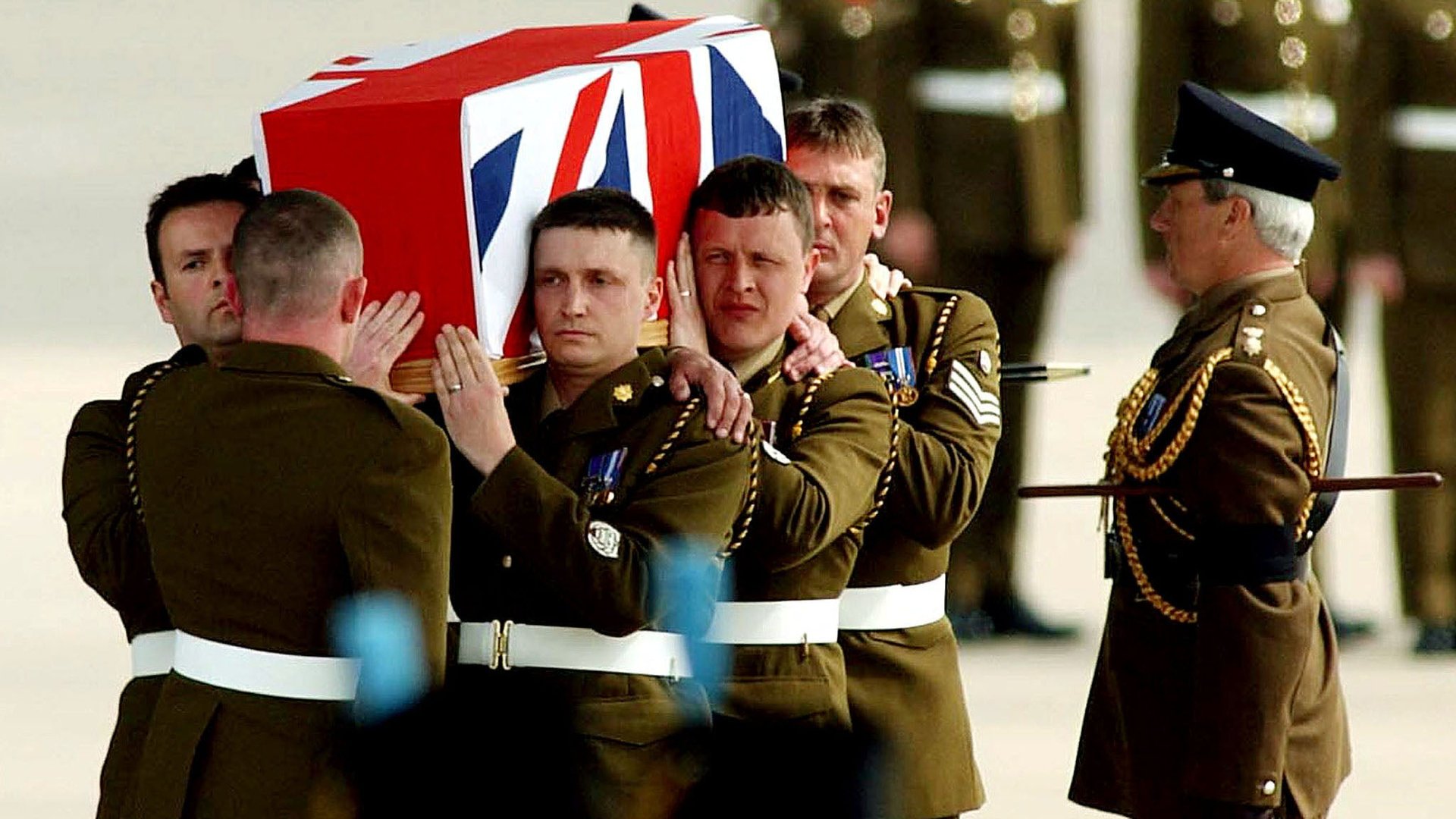A British soldier captures the human failure of the Iraq war better in 144 words than the UK’s 12-volume report
The Chilcot report, an independent investigation into Britain’s role in the Iraq war, was released today (July 6). It takes 2.6 million words—four times more than War and Peace, according to the New York Times (paywall)—to confirm what everyone already knew: that prime minister Tony Blair joined US president George W. Bush in promoting, launching and executing a war based on flawed intelligence, without considering the possibility that Iraq did not possess weapons of mass destruction and without first exploring peaceful alternatives.


The Chilcot report, an independent investigation into Britain’s role in the Iraq war, was released today (July 6). It takes 2.6 million words—four times more than War and Peace, according to the New York Times (paywall)—to confirm what everyone already knew: that prime minister Tony Blair joined US president George W. Bush in promoting, launching and executing a war based on flawed intelligence, without considering the possibility that Iraq did not possess weapons of mass destruction and without first exploring peaceful alternatives.
Responding to the report in a speech that lasted two hours, Blair said he accepted full responsibility and expressed “more sorrow, regret and apology than you can ever know or believe.”
Meanwhile some families who lost soldiers said they will not read the report, fearing it would be a ”whitewash” without any consequences for Blair. Others wept as the results were made public. One woman, whose brother was killed when his plane was shot down over Baghdad, called Blair a “terrorist.”
The Chilcot report took seven years to complete. There are so many people involved that you need a guide to the players just to begin to understand it. Listed in the annex are a dizzying 44 pages of names of the politicians and officials who make an appearance.
But buried at the end of the report, in a section called “Other Material”, is a brief letter from a unnamed British soldier. It is number 10 (pdf) of a dozen submissions from the public, selected from nearly 1,500 that the Chilcot inquiry received via its website. In 144 words, it provides a heartbreaking view into life as a British soldier. It reads as follows:
I served in Kuwait and Iraq from Feb 03 to May 03.During that time I did not receive adequate desert clothing untill a week before I left theatre.
I did not receive any desert boots as all.
Half our rations were american.
Our platoon of approx 30 persons had to share ten rounds of ammunition !
When we crossed the border into Iraq we were given kevlar plates but no body armour, then told to tape them to ourselves under our shirts. (not helpfull)
I write to mention these points to highlight the incompetence of the civil servants who sent us to war on a shoe string budget, and have no experience of serving in an operational area. I feel if this had happened in a civilian context then the employees whould be up on charges of neglect with regard to health and safety.
By: _______Email: _____
Date: 26/11/2009 09:27:17